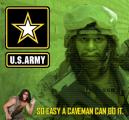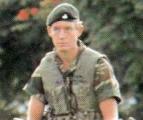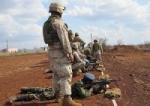... the United States is no more than a supporting actor, among several previously, in a tragedy that ... has violently and savagely pitted the urban, secular, educated and modern of Afghanistan against the rural, religious, illiterate, and traditional ... The Pashtun insurgency ... is fed by what is perceived by the Pashtun people as a continued and sustained assault, going back centuries, on Pashtun land, culture, traditions, and religion by internal and external enemies ...
In both RC East and South, I have observed that the bulk of the insurgency fights not for the white banner of the Taliban, but rather against the presence of foreign soldiers and taxes imposed by an unrepresentative government in Kabul.












 "A Sherman can give you a very nice... edge."- Oddball,
"A Sherman can give you a very nice... edge."- Oddball, 

Bookmarks